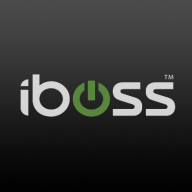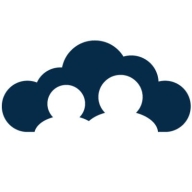


JumpCloud and Twingate are competing in identity management and network security. JumpCloud has an edge in versatility and pricing, whereas Twingate offers a modern approach to secure access with advanced security capabilities.
Features: JumpCloud provides comprehensive identity management, multi-factor authentication, and device management. Twingate emphasizes secure zero-trust network access and enhanced data protection mechanisms.
Ease of Deployment and Customer Service: JumpCloud ensures a straightforward deployment process and robust customer support. Twingate prioritizes streamlined zero-trust network integration with comprehensive setup assistance.
Pricing and ROI: JumpCloud offers competitive pricing with notable ROI through its wide-ranging features. Twingate's pricing is aligned with its security-centric offerings, appealing to environments keen on advanced security measures.
| Product | Market Share (%) |
|---|---|
| iboss | 2.3% |
| JumpCloud | 1.4% |
| Twingate | 2.6% |
| Other | 93.7% |


| Company Size | Count |
|---|---|
| Small Business | 6 |
| Midsize Enterprise | 6 |
| Large Enterprise | 5 |
| Company Size | Count |
|---|---|
| Small Business | 18 |
| Midsize Enterprise | 5 |
| Large Enterprise | 3 |
Iboss offers a comprehensive cloud-based security platform valued for its scalability and autonomous features, ensuring robust security with easy deployment and management capabilities.
Renowned for its robust security architecture, Iboss integrates seamlessly within diverse networks, delivering efficient granular filtering and advanced content categorization. Its single pane of glass console provides ease of management, allowing rapid scalability suitable for rapidly deploying environments. Operates in BYOD setups due to inline filtering without device installation. Integration with cloud-based applications enhances user control, and features like SASE, SSL inspection, and ChatGPT risk protection stand as highlights. Despite its strengths, users have pointed out areas for enhancement like direct navigation in reports, SSL decryption, and better cloud integration while having room to improve data loss prevention.
What are the most important features of Iboss?The usage of Iboss spans educational institutions, specifically K-12, to enforce internet policies, protect data, and support remote work environments. It provides web filtering and security frameworks to ensure safe browsing. Its platform-as-a-service model offers flexibility for both cloud-based and on-premises requirements, integrating seamlessly to deliver enhanced security features suitable for various deployment needs including zero trust, CASB, and network security for work-from-home setups.
JumpCloud offers efficient device management, single sign-on, and integration capabilities. It integrates seamlessly with Microsoft 365 and Google Workspace, streamlining user management across diverse environments.
JumpCloud delivers device, user, and application management across platforms like Windows, Mac, Linux, and cloud services such as AWS and Azure. Acting as a cloud-based directory, it facilitates single sign-on and identity access management, making it an attractive replacement for Active Directory and LDAP directories. Its policy management and centralized directory simplify user and device administration, offering a user-friendly interface with flexible access control and remote management. Organizations can experience streamlined onboarding and offboarding processes, robust authentication, and scalability. Despite being powerful, room for improvement is noted in alert capabilities, comprehensive MDM for Windows, multi-tenant features, and API reliability.
What are the key features of JumpCloud?Companies across industries utilize JumpCloud for comprehensive management of devices and user identities. It is especially beneficial in technology-driven sectors where centralized directory services replace traditional Active Directory and LDAP models. Organizations employing platforms like AWS and Azure find it essential for maintaining efficient and secure access management.
Twingate is a cloud-based network security platform that offers secure, zero-trust access to corporate applications and resources. Its primary use case is to provide remote access to employees, contractors, and partners, allowing them to work securely from anywhere. Twingate's most valuable functionality is its ability to create secure access policies based on user identity, device, and network context. This enables organizations to enforce granular access controls, reducing the risk of data breaches and insider threats.
By leveraging Twingate, organizations can improve their security posture and reduce the IT burden of managing traditional VPNs. It also helps organizations to comply with regulatory requirements, such as GDPR and HIPAA, by providing a secure and auditable access solution.
We monitor all ZTNA as a Service reviews to prevent fraudulent reviews and keep review quality high. We do not post reviews by company employees or direct competitors. We validate each review for authenticity via cross-reference with LinkedIn, and personal follow-up with the reviewer when necessary.